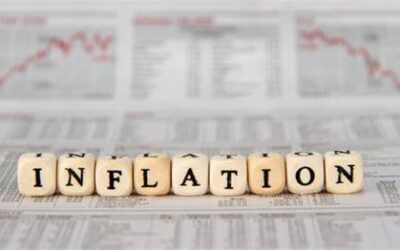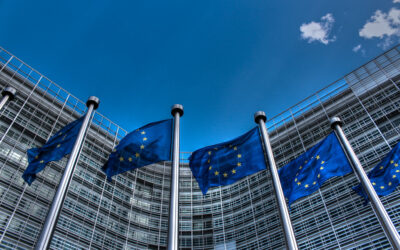
As 2025 marks the Franco-Dutch Economic Year, France and the Netherlands continue to reinforce their bilateral relations across multiple domains, from politics and defence to economic cooperation and sustainability. Over the years, these two nations have cultivated a partnership rooted in shared European values, economic interdependence, and a mutual commitment to a resilient and future-proof economy.
A Deepening Political Partnership
France and the Netherlands have seen their political relationship flourish, aligning more closely on key European matters such as the rule of law, gender equality, freedom of expression, and economic governance. The two nations collaborate extensively on European financial integration, particularly within the Capital Markets Union and Banking Union.
This political alignment was solidified by the joint statement adopted by the French President and the Dutch Prime Minister on August 31, 2021, and further reinforced by the French President’s state visit to the Netherlands in April 2023. This visit emphasized European sovereignty and economic security, as well as key areas of cooperation such as defence, innovation, and energy.
Economic Relations: A Robust and Growing Partnership
France and the Netherlands maintain strong economic ties, with trade between the two nations reaching €63 billion in 2022. The Netherlands remains France’s eighth-largest trading partner, while France ranks as the Netherlands’ third-largest customer. However, France has historically maintained a trade deficit with the Netherlands, which saw a slight improvement in 2022.
Foreign direct investment (FDI) between the two nations is also significant. The Netherlands is the third-largest investor in France, holding €106 billion in FDI stock, with Dutch companies such as Heineken, AkzoNobel, and ING employing over 150,000 people in France. Conversely, France ranks second in FDI stock in the Netherlands, with French firms like Air France-KLM, Engie, and Danone contributing to a turnover of €53 billion and employing 137,000 people.
Collaboration in Defence and Security
France and the Netherlands deepened their defence cooperation by renewing their 2019 bilateral Statement of Intent, with plans for a Defence Framework Agreement that were finalized in 2024. Their partnership extends to defence industry investments and alignment on European export control policies.
A key priority is the enhancement of European defence capabilities, including ramping up manufacturing capacities and securing supply chains. France and the Netherlands are also working together on a potential Dutch accession to the trilateral military export control treaty currently shared by France, Germany, and Spain.
Innovation and Sustainable Growth: Building a Future-Proof Economy
In pursuit of a resilient European Union, France and the Netherlands are spearheading joint initiatives in digitalization, clean energy, and industrial competitiveness. A Pact for Innovation and Sustainable Growth, signed by the business federations VNO-NCW (Netherlands) and MEDEF (France), underscores collaborative efforts in semiconductors, quantum technology, industrial decarbonization, and sustainable mobility.
Furthermore, the two nations are advancing the European Green Deal by supporting the Net-Zero Industry Act and the Critical Raw Materials Act to enhance EU production capabilities and supply chain resilience.
Energy and Climate Cooperation
Recognizing the urgency of climate action, France and the Netherlands have intensified their cooperation on energy security and sustainability. Their bilateral energy dialogue encompasses civil nuclear energy, offshore wind, hydrogen infrastructure, and EU electricity market reform. Both countries advocate for ambitious yet practical climate policies to achieve EU climate neutrality by 2050.
The Economic Impact of Air France-KLM
A symbol of Franco-Dutch economic interdependence, the Air France-KLM Group plays a crucial role in both nations’ economies. With an annual contribution exceeding €70 billion and supporting over 820,000 jobs, the airline group is a key economic driver. For every job created by Air France-KLM, 11 additional jobs are generated in France and 9.2 in the Netherlands.
In France, Air France-KLM significantly benefits regions such as Occitanie, where Airbus aircraft production is cantered, and the Île-de-France region, where the airline contributes 3.2% of the regional GDP. Similarly, the airline’s economic footprint is substantial in the Netherlands, bolstering the economy through employment and tourism.
Looking Ahead: A Strengthened Franco-Dutch Relationship
As France and the Netherlands celebrate their Economic Year in 2025, their partnership continues to evolve, driven by a shared vision for a strong, innovative, and sustainable Europe. Through strategic cooperation in politics, defence, economy, and climate action, the two nations reaffirm their commitment to shaping the future of the European Union together.
References
Air France KLM Group. (2024, June 19). Study: The Air France-KLM Group contributes over €70 billion to the French and Dutch economies every year, supporting more than 820,000 jobs in both countries. Retrieved from Air France KLM Group: https://www.airfranceklm.com/en/newsroom/study-air-france-klm-group-contributes-over-eu70-billion-french-and-dutch-economies-every
Government of the Netherlands. (2023, April 12). Joint declaration – Government Consultations Netherlands – France, 12 April 2023. Retrieved from Government of the Netherlands: https://www.government.nl/documents/diplomatic-statements/2023/04/12/joint-declaration—government-consultations-netherlands—france-12-april-2023
Ministère de l’Europe et des Affaires étrangères . (2025). France and Netherlands. Retrieved from Ministère de l’Europe et des Affaires étrangères : https://www.diplomatie.gouv.fr/fr/dossiers-pays/pays-bas/relations-bilaterales/
Photo:
https://th.bing.com/th/id/R.7a4601e9e162ea62e698a4e4a9312ce1?rik=JmIsMrh2LhXZOw&pid=ImgRaw&r=0



